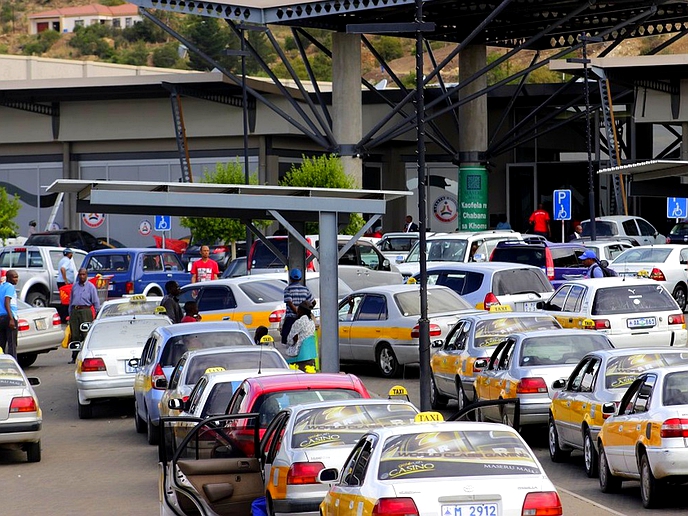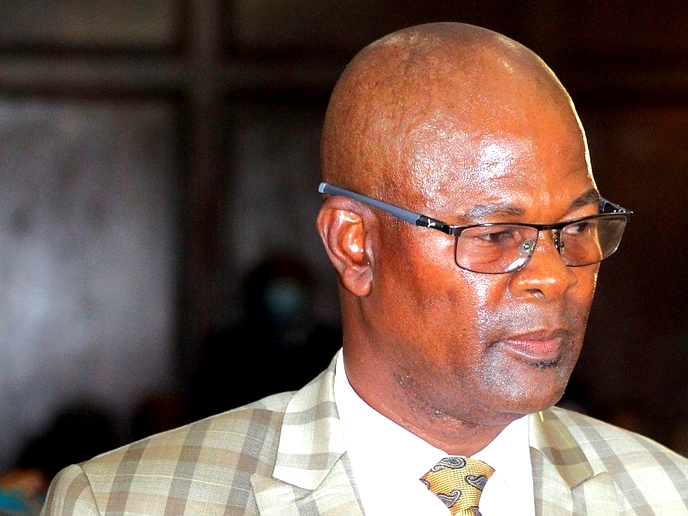SINCE the first national lockdown that was implemented in March 2020, the manufacturing industry has experienced lowest employment levels at 29 000 people, due to downsizing of operations and total closure of some companies.
business
Feb. 19, 2021
NEO SENOKO
3 min read
Manufacturing registers lowest employment levels

The Minister of Trade and Industry, Dr Thabiso Molapo
More than 50 percent of companies in the industry reported revenue loss of more than 10 percent in September 2020 compared to the same period in 2019.
This was revealed by Prime Minister Dr Moeketsi Majoro on Thursday last week during an economic session on revitalizing Lesotho’s export manufacturing competitiveness.
The strategic session envisioned to discuss challenges and opportunities surrounding the country’s export competitiveness during the difficult times of the COVID-19 pandemic.
Whereas it is true that over the past five years, the manufacturing industry performance stagnated at average export values ranging between $280 million and $290 million for South Africa and United States of America (USA) markets respectively, the COVID-19 pandemic has provided the country an opportunity to rethink its stance. As a result, Lesotho country is seeking to enhance struggling export competitiveness and attract new investments, particularly at the time when global economies are riddled with social and economic challenges brought about by the pandemic.
“Our economy is indeed not spared from this crisis and therefore calls us to re-think, re-strategize and re-draw economic development policy regime that is agile and robust enough to mitigate the ensuing challenges,” Dr Majoro said in his keynote address.
The textile and apparel industry particularly has been hard hit by the pandemic, experiencing devastating cancellation of orders, delays in deliveries of raw materials and final goods, revenue losses, retrenchments and reduced activity like never before.
All these are despite the fact that the sector is also key to the performance of other sectors in its value chains.
The pandemic has further revealed underlying macroeconomic challenges stifling the country’s export competitiveness.
In a move to retain and attract new investments into the sector, Dr Majoro said the country should improve investment climate policies and laws, implement national reforms as well as enhance investor confidence by strengthening investor protection.
Improving communication channels with investors as well as accelerating resolution of investor grievances should also be critically looked into and generally reducing the cost of doing business.
“As we lift lockdown restrictions, we are confident that the manufacturing industry will recover, although at a much slower pace due to a phased approach to the lifting of restrictions,” the PM added.
Lesotho’s export performance with Europe has been fluctuating for the past five years owing to the dominance of diamonds as the main export product whose pricing is affected by geographical and socio economic factors.
Enjoy our daily newsletter from today
Access exclusive newsletters, along with previews of new media releases.
While attesting to the fact that the pandemic has affected economic progress in the country, the Minister of Trade and Industry Dr Thabiso Molapo said his ministry through its agency the Lesotho National Development Corporation (LNDC) made consultations with the manufacturing industry to understand remedial measures being put in place by the industry to limit the spread of the pandemic as well as to understand further the current and likely impact.
“Factory workers, transport and logistics and other industries linked to the sector have been severely impacted by the effects of the pandemic. The government is committed to supporting the sector amidst these challenges,” he said.
The export manufacturing value chain is one of the priority sectors identified by the government and therefore, accelerated implementation of priority reforms are critical for stimulating economic recovery, increasing investment and enabling job creation.
Tailored for you






